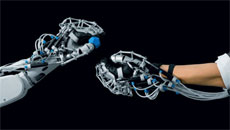Heard of a battery that consumes sugar and can run your smart phone for 10 days? This bio-battery may soon become a reality.
Researchers at Virginia Polytechnic Institute and State University, popularly known as Virginia Tech, have designed a new bio-battery with a greater output per weight than the typical lithium-ion batteries used in most electronics.
A bio-battery converts sugar into energy - much like our metabolism - decomposing sugar into carbon dioxide and water while releasing electrons.
"By using the lithium-ion battery, for example, your phone can only last for one day. In the future, it would use sugar as the fuel. Then the phone could last 10 days,” explained Zhiguang Zhu, a researcher at Virginia Tech.
The new bio-battery fully converts sugar into energy, which means more power output than previous bio-batteries and a greater battery charge than common lithium-ion batteries.
The new bio-battery gets its efficiency by using a novel system of enzymes which are proteins that help the reaction to take place.
The system uses two active enzymes that liberate two pairs of electrons from the sugar while 10 other enzymes help to reset the reaction inside the bio-battery.
Once the reaction is reset, the active enzymes release another quartet of electrons.
After six cycles, the bio-battery extracts all of the energy bound in the sugar molecule along with carbon dioxide and water.
However, scientists would have to overcome a few more challenges on the engineering side before bio-batteries are put into commercial use, said a paper published online in the journal Nature Communications.

